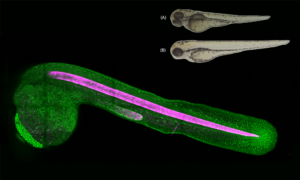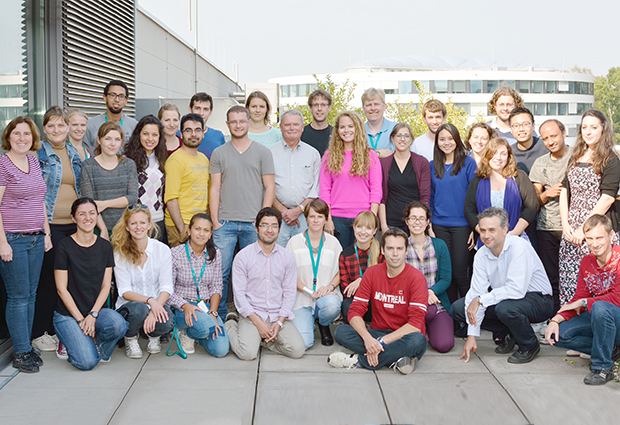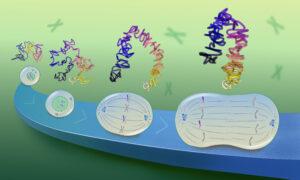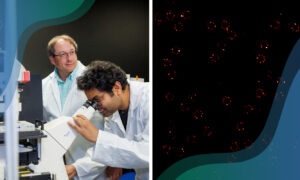
PEPC recipe for success
Sample quality sets the stage for the outcome of any experiment: you can’t make a silk purse out of a sow’s ear, as the saying goes – or more specifically, if you put garbage into your fancy equipment you will get garbage out.

To help filter gold out of the garbage, the ninth Protein Expression, Purification and Characterization EMBO practical course was held at EMBL Hamburg in September. The course focuses on state-of-the-art techniques in sample preparation for structural biology experiments, which require large amounts of pure, high-quality biological samples.
The hands-on course attracted 20 students from 15 countries for an intensive eight-day programme of lectures and practical sessions, with a blend of basic training in expression and purification techniques, and the latest developments in the use of subsequent samples. A highlight was the presentation by Petra Fromme of Arizona State University on new sample delivery techniques for free electron lasers, including recent results from a study of different light/dark stages of photosystem II, the first link in the chain of photosynthesis. Another high point was when Yiorgo Skiniotis of the University of Michigan showed how improvements in sample preparation and detector technologies enabled the study of the catalytic cycles of a large multi-component enzyme using electron microscopy.
Students were encouraged to provide their own samples and could use facilities at EMBL Hamburg, EMBL Grenoble and the Oxford Protein Production Facility UK (OPPF), thanks to the close collaboration between the three facilities for the course organisation. OPPF cloned, expressed and purified samples from 10 participants, while the Berger group in Grenoble tested expression in baculovirus, providing several participants with promising enough results to continue at home or in collaboration with the facilities. The sample preparation and characterisation facility at EMBL Hamburg provided thermal shift assays, and several samples were crystallised for the first time during the course.
Since the attendees’ samples were processed before and during the course, they could discuss their ongoing projects with tutors, prompting open and detailed discussions about how to apply what they learned, and when to deviate from the well-trodden path. The opportunity to discuss strategies with world-leading experts was greatly appreciated: “Even though the crystallisation experiments did not work, it was really good to be able to discuss and understand why,” said an attendee from the University of Graz. “We already have results from the protein samples,” added another from the University of Münster. “Having discussed the results with the experts, I can return to my lab with new ideas about how to continue with my project.”
For details of the next course, to be held in September 2016, please contact Rob Meijers – scientific co-organiser and EMBL Hamburg group leader – or subscribe to the EMBO events e-newsletter.


